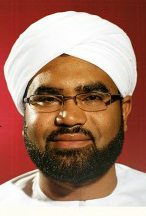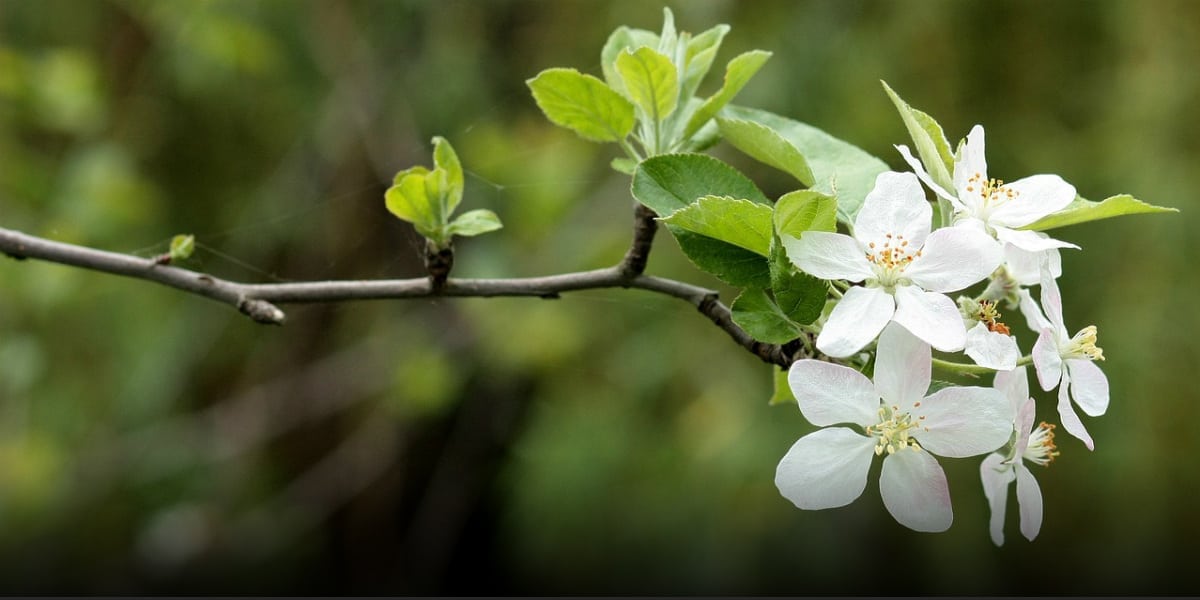Overcoming Greed, Opening Yourself To Gratitude, by Shaykh Faid Mohammed Said
Shaykh Faid Mohammed Said reminds us that one of the worst attachments we have is to greed. It blinds us and incapacitates us. How did the men and women before us overcome this?
Bismillah-ir Rahman-ir Raheem
Allah (subhana wa ta’ala) said in the Qur’an, in Surah Yusuf (3): “Indeed We have related to you the most beautiful of stories…”
In these stories, Allah (subhana wa ta’ala) speaks in the Qur’an about the Anbiya, the Saliheen and sometimes He also mentions the oppressors so that we may take from it a lesson for ourselves.
Also, by relating to us stories, Allah (subhana wa ta’ala) is telling and teaching us about human nature; and one of the worst attachments to our nature is greed. Greed for money and more broadly, greed for loving and wanting everything, which can turn into jealousy and envy and can also cause undue stress.
In this regard, Allah (subhana wa ta’ala) tells us in the Qur’an the story of Ibrahim (alaih salam): a Nabi, standing in front of the oppressor king Nimrod, and in describing this meeting Allah (subhana wa ta’ala) tells Rasulullah (sallallahu alayhi wasalam) and us in the Qur’an: “Have you not considered the one who argued with Abraham about his Lord [merely] because Allah had given him kingship?” (Surah Al-Baqarah, 258)
In this ayah, Allah (subhana wa ta’ala) is saying that He is the one that made Nimrod a king and gave him power, and Allah (subhana wa ta’ala) gave kingship and power to someone who was a disbeliever. But Ibrahim (alaih salam) was certain in his knowledge that in reality Nimrod was given nothing, as he was not given the gifts of iman, guidance and piety!
This are the Saliheen! They are lost in counting the blessings of Allah (subhana wa ta’ala)!
Also, Nimrod did not only have kingship and power, but that power extended to having control over Ibrahim (alaih salam) as well, but it was Allah (subhana wa ta’ala) who gave Nimrod that power, and if there were to be any khayr in it, than it would have been given to Ibrahim (alaih salam), hence the thought of jealousy never occurred.
In Surah Al-Qasas, Allah (subhana wa ta’ala) tells us a story about Syedina Musa (alaih salam), in which Allah (subhana wa ta’ala) describes how Musa (alaih salam) was going through a lot of hardship, while Allah (subhana wa ta’ala) gave his cousin, Qarun, power and wealth beyond imagination. Allah (subhana wa ta’ala) gave an example of the extent of Qarun’s wealth in describing the key to the doors of his stores, which was so rich that it could only be lifted by the strongest man of that era.
Allah (subhana wa ta’ala) shows us human nature in telling that when Qarun went out with all his wealth, supporters and subjects, it was the human nature in people that made them feel jealous of Qarun, and they all wished to be him. What they saw in Qarun was his wealth, his comfort and his ease; but no one wanted to be like Musa (alaih salam)! The people did not see a Nabi, or the one who speaks to Allah (subhana wa ta’ala), all they saw was an exterior of a man who was going through hard times, and hence no one wanted to be like Musa (alaih salam).
But when Allah (subhana wa ta’ala) destroyed Qarun and the earth swallowed him and his wealth, the same people who were in awe of him said that it was a blessing that they were not like him; these are the very people who wished before to be Qarun, and now they were thanking Allah (subhana wa ta’ala) for not being like him!
In these stories, there is a lesson: the people that were following the opponent of Ibrahim (alaih salam) saw that he was a powerful king, and as such they did not see the khair of Ibrahim (alaih salam), his Nabuwwah and that he was Khalilullah!
The people that were following the opponent of Musa (alaih salam) saw his opponent’s wealth and resources, which did not allow them to see the khair of Musa (alaih salam), his Nabuwwah and that he was Kaleemullah!
In applying the lesson to us we must know that in every time there will be Nimrods and Qaruns, but there will also be the Saliheen as well! So in taking lesson, we should strive to align to the Saliheen and not the Nimrods and Qaruns of our time. The Saliheen are in our time as well, and they are the ones that have been truly blessed, despite their apparent disrespect and neglect by people; people will only miss the Saliheen when they are no longer there!
If it was in the judgment of the previous people to want to be Qarun and Nimrod, we should be wise and learn from that mistake, and instead of wanting to be someone else, we should be grateful for what we have.
WE should be grateful and smile!
If you have the blessing of time, be grateful and smile, because many people wish for this.
If you have the ability to walk, talk and hear, be grateful and smile, because many people wish for this.
If you have food on your table and a roof over your head, be grateful and smile, because many people wish for this.
If you have a family, be grateful and smile, no matter how difficult they might be, because many people wish for this.
If you have a husband or wife, no matter how bad you may think they are, be grateful and smile, because many people
wish for this.
Do not wish to be anyone else, and be happy with the hikmah of Allah (subhana wa ta’ala), because the very person you
wish to be, you may not know what they are going through. There are many things in life to be grateful and happy for, so smile!
At the end, Allah (subhana wa ta’ala) said in the Qur’an: “If you are grateful to Me, I will increase you!”
And this is our first message of the year.
May Allah (subhana wa ta’ala) make this a year of khair, and may He guide us, as He granted us a great beginning, and continue to guide us. May Allah (subhana wa ta’ala) clear from our heart all that is other than Him, remove any love other than His and that of Rasulullah (sallallahu alayhi wasalam); may Allah (subhana wa ta’ala) make our hearts a place for no one other than Allah (subhana wa ta’ala) and Rasulullah (sallallahu alayhi wasalam).
We wish for you and for us a year full of ibadah, remembrance and praise of Allah (subhana wa ta’ala) and a year of salawat upon Rasulullah (sallallahu alayhi wasalam). May it be a year of reconnecting with the Qur’an through reading, understanding and implementing it.
Resources for seekers
- A Reader on Thankfulness to Allah and True Gratitude
- True Gratitude For Food – SeekersHub Podcast
- How To Be Like The Prophet Muhammad In His Gratitude to Allah
- Reality, Aspects, & Expression of True Gratitude
- What Are the Different Ways To Show Gratitude to Someone?
- Dua of Gratitude vs. Dua of Request, Surat al-Naml (verse 19)
 Shaykh Faid Mohammed Said is a jewel in the crown of traditional Islamic scholarship in the United Kingdom and we at SeekersHub are ever grateful for his friendship, guidance and support. He was born in Asmara, Eritrea, where he studied the holy Qur’an and its sciences, Arabic grammar and fiqh under the guidance of the Grand Judge of the Islamic Court in Asmara, Shaykh Abdul Kader Hamid and also under the Grand Mufti of Eritrea. He later went to study at Madinah University, from which he graduated with a first class honours degree. In Madinah, his teachers included Shaykh Atia Salem, Shaykh Mohamed Ayub (ex-imam of the Prophet’s Mosque, peace be upon him), Professor AbdulRaheem, Professor Yaqub Turkestani, Shaykh Dr Awad Sahli, Dr Aa’edh Al Harthy and many other great scholars. Shaykh Faid has ijaza in a number of disciplines including hadith, and a British higher education teaching qualification. He is currently the scholar in residence and head of education at Harrow Central Mosque, United Kingdom. Read his articles on the SeekersHub blog.
Shaykh Faid Mohammed Said is a jewel in the crown of traditional Islamic scholarship in the United Kingdom and we at SeekersHub are ever grateful for his friendship, guidance and support. He was born in Asmara, Eritrea, where he studied the holy Qur’an and its sciences, Arabic grammar and fiqh under the guidance of the Grand Judge of the Islamic Court in Asmara, Shaykh Abdul Kader Hamid and also under the Grand Mufti of Eritrea. He later went to study at Madinah University, from which he graduated with a first class honours degree. In Madinah, his teachers included Shaykh Atia Salem, Shaykh Mohamed Ayub (ex-imam of the Prophet’s Mosque, peace be upon him), Professor AbdulRaheem, Professor Yaqub Turkestani, Shaykh Dr Awad Sahli, Dr Aa’edh Al Harthy and many other great scholars. Shaykh Faid has ijaza in a number of disciplines including hadith, and a British higher education teaching qualification. He is currently the scholar in residence and head of education at Harrow Central Mosque, United Kingdom. Read his articles on the SeekersHub blog.
